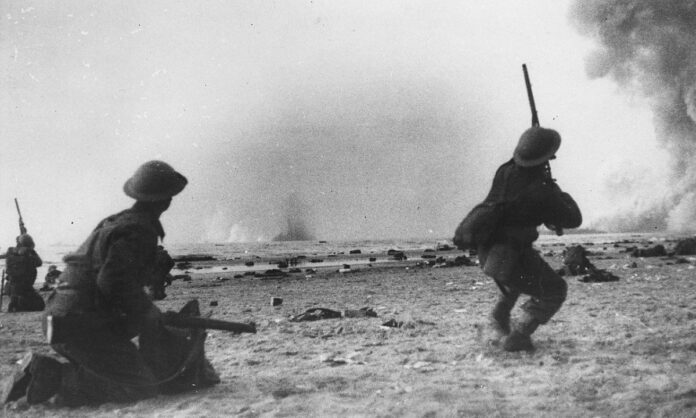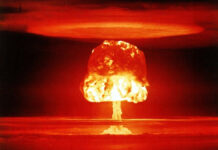
I don’t know about you, but I’m expecting war in the Middle East, possibly leading up to the next world war. It is hard to imagine anything but escalation since Israel has not invaded Hamas yet. When they do, it will generate even more global attention and negative reactions among Muslims. This conflict has already overshadowed the Ukraine war and may raise the chances of China invading Taiwan while the U.S. is distracted. Then there is a brewing war between Kosovo and Serbia and the simmering conflict in Syria. Whether this is a world war yet, we are seeing a world very much at war.
If all this kicks off WWII, no one should be surprised at who is on each side as it will be the usual suspects: the United States, NATO countries, Israel, Taiwan, Australia, South Korea and a few others against Russia, China, North Korea, and most of the Arab world. India will probably remain neutral for a while and then side with us because they hate China. If they are lucky, Brazil and most of South American will be able to stay out of it.
If there are any historians left alive in 2045, they will debate whether WWIII started with the Russian invasion of Ukraine or the Hamas invasion of Israel. The answer will be “both.” Russia started it, Hamas made it go global.
Then and Now
I wonder if this is what it felt like in 1940? War on the horizon and drawing closer. Citizens hoping war will be avoided but expecting it won’t.
For anyone unfamiliar with history, let me explain: WWII started when Germany invaded Poland in September 1939, leading France and England to declare war on Germany. Germany overwhelmed Poland and rolled through the Netherlands, Luxembourg, and Belgium, into France. The battle of Dunkirk, when Germany drove the English out of France (you may have seen the 2017 movie Dunkirk), ended in early June of 1940 . (Watch the movie Darkest Hour for more nuance and detail about what was happening with Great Britain in the early 1940s.)
The air campaign against Great Britain, our closest ally at the time, started the next month as waves of Germany bombers struck London repeatedly for four months in the Battle of Britain. The pictures of destruction and the trail of dead bodies are as bad any anything we see coming from Ukraine and Israel.
Similarities between then and now are such that one could argue that people living in the United States in October 1940 probably felt much like we do today, wondering if the U.S. will get sucked into a war and whether American blood will yet again be spilled on foreign soil.
Dangerous Parallels
When the Japanese struck Pearl Harbor, they targeted our battleships, sinking the USS Arizona and the USS Oklahoma. They severely damaged the USS Nevada, which beached herself to prevent sinking. The USS California was hit by torpedoes and sank in shallow water a few days later. Six torpedoes and a number of bombs hit the USS West Virginia, the final battleship we lost in that attack. Knocking five battleships out of commission was considered a tremendous blow to the Pacific Fleet.
Japan targeted the battleships because they believed the big boats represented the largest threat to their plans. In that assessment, Japan was making the common military mistake of fighting the last war. During the subsequent war in the Pacific, aircraft carriers proved to be more dangerous than battleships. While Japan used its aircraft carriers in the Pearl Harbor attack, it failed to deal the U.S. Navy a deadly blow because no U.S. aircraft carriers were in the harbor.
Now we have to wonder if the U.S. is the country fighting the last war. While its aircraft represent a serious threat on the doorstep of Lebanon, Syria, and Iran, one has to wonder if they will be vulnerable to anti-ship missiles. We know China hopes they are and has been working on anti-ship missiles, hoping to produce sufficient numbers to overwhelm the U.S. defenses. Will our fleet in the Mediterranean be targeted with missiles from Iran or Hezbollah? Will dozens of explosive-laden speed boats, similar to those that damaged the USS Cole, attack? If so, can we fend them off?
I think the sinking of a U.S. aircraft carrier would lead to a declaration of war almost as quickly as Pearl Harbor did.
Nazi Sympathizers and Palestinian Sympathizers
Just as some Americans protest Israel’s actions and believe Hamas propaganda, there were Americans 83 years ago who were Nazi sympathizers and made excuses for the Germans. It took the Japanese sneak attack on Pearl Harbor and a declaration of war to turn some of them around. Today, I’m not sure that would do it. We seem to harbor enemy agents among us, including some who walk our halls of power in Washington.
What helped the U.S. win WWII was our industrial capacity, which was harnessed to churn out planes, tanks, ships, submarines, landing crafts, artillery pieces, pistols, rifles, and ammunition for “our boys” and our allies. General motors made tanks. Typewriter and sewing machine companies made carbines and pistols. A shipbuilding company in Wisconsin even made 28 submarines and floated them down the Chicago River and the Mississippi River to the Gulf to join the war effort.
Sadly, much of that industrial might is gone. We haven’t even declared war and our weapons stash is dwindling.
So are our pocketbooks. The country is running up massive debt and the current proposal by Biden is to send about $60 billion in military aid to Ukraine and $40 billion to Israel. That $40 billion is about twice what Israel spent on its military in 2022.
Of course, during the lead up to WWII, the U.S. was also in bad economic shape, with a lost decade caused by the Great Depression and the Dust Bowl. The war actually boosted the economy. Don’t count on that working this time around. In Bidenomics, nothing works out like they hope it will.







